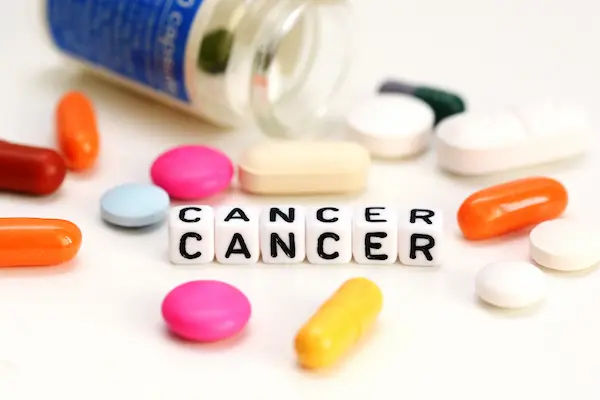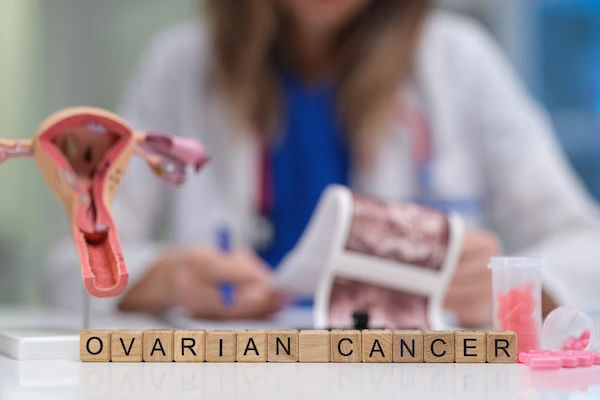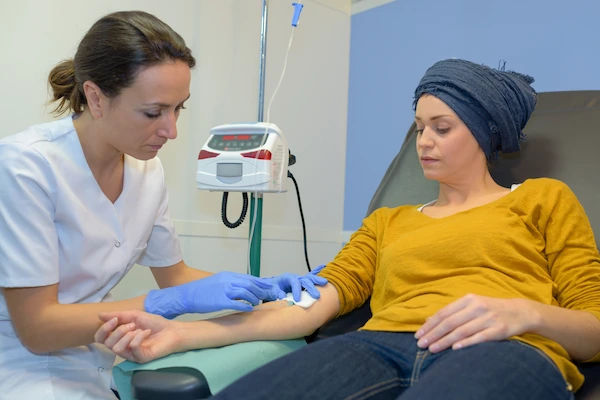Chemotherapy Mechanism in Cancer: A Complete Overview
Chemotherapy is a method of cancer treatment that uses chemicals to eliminate cancer cells. Learn about its types, usage, side effects, and more.

Written by
Last updated on 13th Jan, 2026
Chemotherapy is a medical treatment that uses potent chemicals to target and kill rapidly growing cells in the body. It is the most commonly used treatment for cancer, as malignant cells grow and multiply more quickly than normal cells.
There are various chemotherapy medications available, which can be used either alone or in combination to treat different types of cancer. This article covers the chemotherapy mechanism in cancer, how it works, its types, procedures, side effects, and more.
How Chemotherapy Works?
Chemotherapy works by preventing or decreasing the growth of cancer cells, which multiply and divide rapidly in the human body. Chemotherapy is used for two purposes, which are as follows:
Chemotherapy can cure cancer, reduce the risk of recurrence, and halt its growth.
Chemotherapy can reduce cancer symptoms by shrinking tumours that cause pain and other issues.
Types of Chemotherapy Drugs
Here are the types of chemotherapy drugs used for cancer treatments:
Alkylating Agents: This particular group of medications acts directly on DNA to prevent the cell from replicating itself. These medications destroy cells throughout the cell cycle. Alkylating drugs include chlorambucil, cyclophosphamide, cisplatin, and carboplatin.
Anti-metabolites: These medicines interfere with deoxyribonucleic acid (DNA) and ribonucleic acid (RNA) by substituting their regular building components. These are often used to treat leukaemia, breast, ovarian, and intestinal cancers, among other malignancies. Anti-metabolite drugs include fluorouracil, methotrexate, and fludarabine.
Anthracyclines: These are antitumor antibiotics that inhibit enzymes involved in DNA replication during the cell cycle. They attach to DNA, preventing it from making copies of itself and a cell from reproducing. Enzymes are proteins that initiate, aid, or accelerate the rate of chemical processes in cells. Examples of anthracyclines are daunorubicin, doxorubicin liposomal, and epirubicin.
Plant Alkaloids and Natural Products: This group of medicines can inhibit a cell's capacity to divide and form two cells, as well as heal cell damage. Examples include vincristine, paclitaxel, and topotecan.
Anti-tumour Antibiotics: Anti-cancer medications originate from microorganisms. These antibiotics do not work the same way as antibiotics used to treat infections do. They have the potential to function at any point during the cell cycle. They either break apart DNA strands or reduce or stop DNA synthesis, which is required for cell growth. Examples include bleomycin, doxorubicin, and mitoxantrone.
Administration of Chemotherapy In Cancer
The usage of chemotherapy drugs in cancer include:
Chemotherapy Infusions: Chemotherapy is most commonly administered intravenously. The medications can be administered by putting a tube with a needle into a vein in the human arm or a device in a vein in the chest.
Chemotherapy Tablets: Some chemotherapy medications can be administered as pills or capsules.
Chemotherapy Injections: Chemotherapy medications can be given with an injection.
Chemotherapy Creams: Certain kinds of skin cancer can be treated with creams or gels containing chemotherapeutic medicines.
Treatment and Schedules of Chemotherapy
The doctor determines the frequency of chemotherapy sessions depending on the precise medications administered, the characteristics of the disease, and the patient's capacity to recover after each treatment.
Therefore, the course of chemotherapy might vary according to individual needs. Some therapies are administered continuously, while others include alternating periods of therapy and rest to help in the body's recovery process.
Consult Top Doctors for Personalised Treatment
Cellular Resistance to Chemotherapy in Cancer
Chemotherapy resistance develops when tumours that have previously responded to therapy suddenly increase. Chemotherapy resistance can occur for a variety of reasons:
A cancer cell may produce hundreds of copies of a particular gene which is called gene amplification, and triggers an overproduction of protein that makes the anticancer drug ineffective.
Cancer cells may pump the drug out of the cell as fast as it is going in using a molecule called p-glycoprotein.
The cancer cells may learn how to repair the DNA breaks caused by some anti-cancer drugs.
Cancer cells may develop a mechanism that inactivates the drug.
Side Effects Of Chemotherapy In Cancer
Common side effects of chemotherapy drugs include:
Vomiting
Fatigue
Nausea
Mouth sores
Loss of appetite
Heart problems
Hair loss
Easy bruising
Diarrhea
Pain
Bleeding
Constipation
Fever
Nerve damage (peripheral neuropathy)
Damage to lung tissue
A doctor should be consulted if a patient is at risk of experiencing any of these side effects. Additionally, the doctor should be asked about the specific signs and symptoms that should be monitored during chemotherapy.
Advancements and Innovations in Chemotherapy
Chemotherapy remains a key cancer treatment, with advances that have boosted its efficiency and reduced side effects. Targeted medicines focus on specific cancer cell markers, minimising damage to healthy organs. Combining immunotherapy with chemotherapy has also enhanced treatment outcomes by better targeting cancer cells.
Technological advancements have also transformed chemotherapy. Dosage optimisation tools and real-time monitoring systems provide individualised and adaptable therapies, which result in ideal efficacy while reducing unwanted effects. These innovations improve chemotherapy performance and patient comfort.
Success Rates and Prognosis in Chemotherapy
Cancer survival rates vary widely based on the kind of cancer, the patient, the treatment, and biology. Malignancies such as pancreatic (8.3%), brain (12.9%), and liver (13.4%) have poor five-year survival rates, but testicular (93.5%), cutaneous melanoma (92.6%), and prostate (88.5%) malignancies have significantly higher rates.
Early diagnosis increases survival chances. For example, in 2021, 43% of pancreatic tumours were detected at stage 4, compared to just 18% of prostate cancers. Shorter wait times for expert consultations and early diagnostic procedures can facilitate early detection.
Conclusion
Chemotherapy is a vital component in the battle against cancer, with considerable advantages in terms of cancer cure, recurrence risk reduction, and symptom relief. The range of chemotherapy medications, including alkylating agents, anti-metabolites, and anthracyclines, enables individualised treatment methods for various forms of cancer.
Therefore, recent advances in targeted cancer treatments and personalised medicine have resulted in potential improvements in chemotherapy's efficiency and patient safety.
Consult Top Oncologists
Consult Top Oncologists

Dr. Amit Choraria
Surgical Oncologist
18 Years • MBBS, MS (Surgery) Fellow, Surgical Oncology, Tata Medical Center (FSO) Fellow, European Board of Surgery (Surgical Oncology) (FEBS) Fellow, Minimal Access Surgery (FMAS) Fellow, Indian Association of Gastrointestinal Endosurgeons (FIAGES) UICC Fellow, Royal Marsden NHS, London, UK Visiting Scholar, Plastic Reconstructive Surgery, CGMH, Taiwan Fellow, Robotic Surgical Oncology, Vattikuti Foundation, USA
Kolkata
Apollo Multispeciality Hospitals , Kolkata, Kolkata
(75+ Patients)

Dr. Rupam Manna
Radiation Specialist Oncologist
7 Years • MBBS MD(RADIO THERAPY), CCEBDM
Barasat
Diab-Eat-Ease, Barasat

Dr. Sanchayan Mandal
Medical Oncologist
17 Years • MBBS, DrNB( MEDICAL ONCOLOGY), DNB (RADIOTHERAPY),ECMO. PDCR. ASCO
Kolkata
MCR SUPER SPECIALITY POLY CLINIC & PATHOLOGY, Kolkata
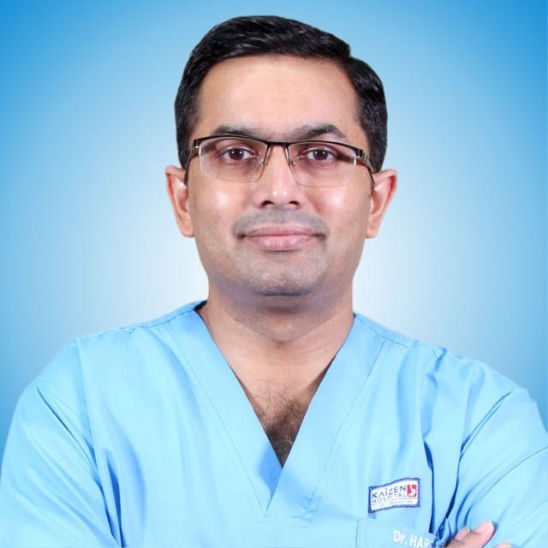
Dr. Harsh J Shah
Surgical Oncologist
15 Years • MS, MCh (GI), DrNB (GI)
Ahmedabad
Apollo Hospitals Gandhinagar, Ahmedabad
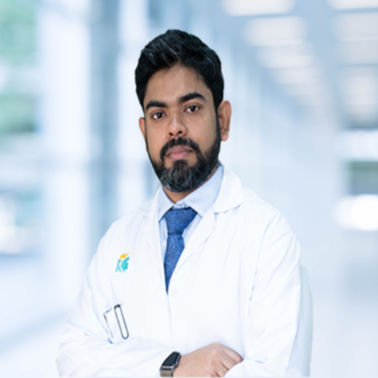
Dr Supratim Bhattacharyya
Surgical Oncologist
11 Years • MBBS,MS,Mch(Surgical Oncology),Fellowship in Minimally Invasive GI Surgical Oncology and Robotic Surgery
Kolkata
Apollo Multispeciality Hospitals , Kolkata, Kolkata
(25+ Patients)
Consult Top Doctors for Personalised Treatment

Dr. Amit Choraria
Surgical Oncologist
18 Years • MBBS, MS (Surgery) Fellow, Surgical Oncology, Tata Medical Center (FSO) Fellow, European Board of Surgery (Surgical Oncology) (FEBS) Fellow, Minimal Access Surgery (FMAS) Fellow, Indian Association of Gastrointestinal Endosurgeons (FIAGES) UICC Fellow, Royal Marsden NHS, London, UK Visiting Scholar, Plastic Reconstructive Surgery, CGMH, Taiwan Fellow, Robotic Surgical Oncology, Vattikuti Foundation, USA
Kolkata
Apollo Multispeciality Hospitals , Kolkata, Kolkata
(75+ Patients)

Dr. Rupam Manna
Radiation Specialist Oncologist
7 Years • MBBS MD(RADIO THERAPY), CCEBDM
Barasat
Diab-Eat-Ease, Barasat

Dr. Sanchayan Mandal
Medical Oncologist
17 Years • MBBS, DrNB( MEDICAL ONCOLOGY), DNB (RADIOTHERAPY),ECMO. PDCR. ASCO
Kolkata
MCR SUPER SPECIALITY POLY CLINIC & PATHOLOGY, Kolkata

Dr. Harsh J Shah
Surgical Oncologist
15 Years • MS, MCh (GI), DrNB (GI)
Ahmedabad
Apollo Hospitals Gandhinagar, Ahmedabad

Dr Supratim Bhattacharyya
Surgical Oncologist
11 Years • MBBS,MS,Mch(Surgical Oncology),Fellowship in Minimally Invasive GI Surgical Oncology and Robotic Surgery
Kolkata
Apollo Multispeciality Hospitals , Kolkata, Kolkata
(25+ Patients)
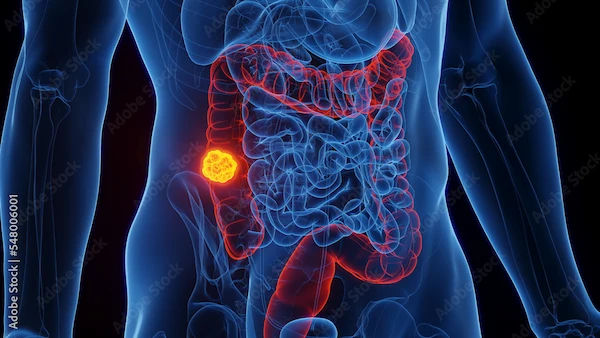
.webp)
